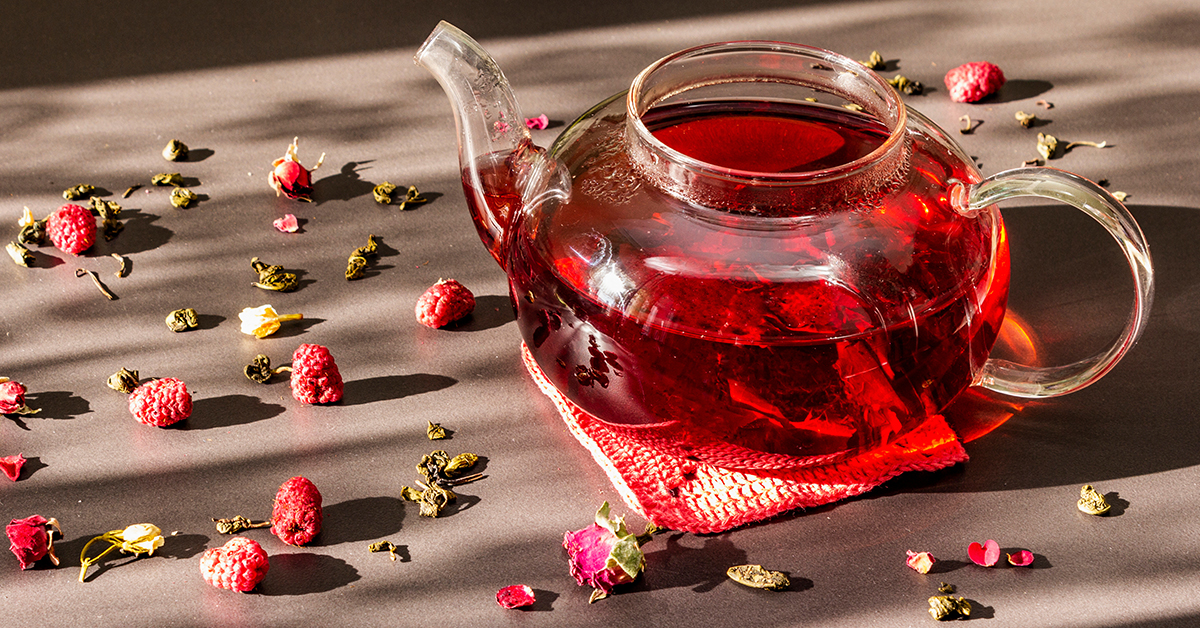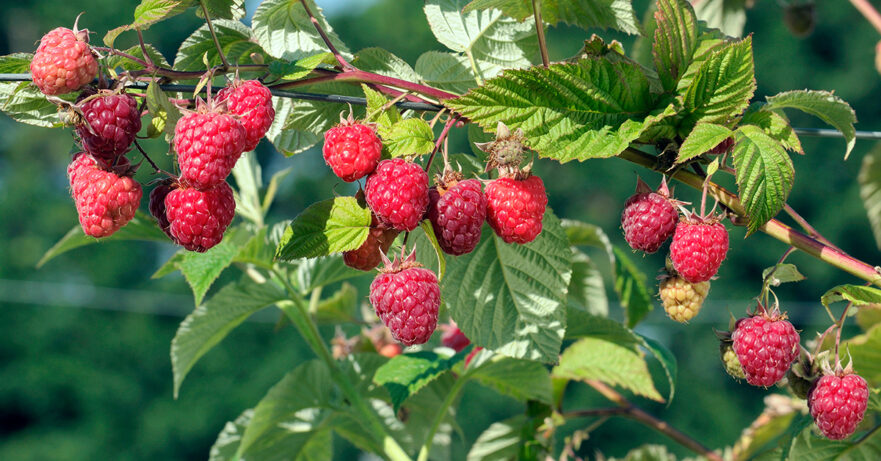In this monograph about raspberry:
📖 Introduction | 🌱 Botanical Description | 📜 Traditional Uses | 🔍 Phytochemistry | ✨ Applications and Uses | 🛡️ Safety Profile
📖 Introduction
Raspberry (Rubus idaeus) is a perennial plant known for its delicious fruits and significant therapeutic properties. Traditional medicine utilizes raspberry for its nutrient-rich leaves and fruits, but it is mainly celebrated for its benefits during pregnancy and gastrointestinal and cardiac support.
| English Name | Raspberry |
| Latin Name | Rubus idaeus |
| Parts Used | Leaves, fruits |
| Traditional Uses | Nutritional support during pregnancy, uterine health, gastrointestinal aid |
| Herbal Actions | Nutritive, astringent, tonic |
🌱 Botanical Description
Scientific Classification
Rubus idaeus belongs to the Rosaceae family.
Physical Characteristics
Raspberry plants feature woody stems with thorn-like prickles and green pinnate leaves. When ripe, they bear fruit ranging from red to pink.
Natural Habitat and Cultivation Details
Native to Europe and parts of Asia, raspberry thrives in temperate regions. It prefers well-drained, fertile soils that receive full sun to partial shade. Widely cultivated, raspberry is harvested for both commercial and medicinal purposes.
📜 Traditional Uses
Raspberry leaves have been traditionally used to support women’s health, particularly during pregnancy, to facilitate childbirth and reduce labor pains. The leaves and fruits are also used to alleviate symptoms of gastrointestinal distress and support cardiovascular health, demonstrating a versatile application in herbal medicine.

🔍 Phytochemistry (Active Constituents)
Raspberry leaves and fruits contain several key components contributing to their medicinal properties:
- Fragarine: A compound found in raspberry leaves traditionally believed to help tone and tighten muscles in the pelvic region, including the uterine walls. However, clinical evidence to conclusively support these claims is limited, and further research is necessary to establish its efficacy and safety.
- Flavonoids: Offer antioxidant properties that enhance immune health and protect against cellular damage.
- Tannins: They contribute to raspberry’s astringent properties and are useful in soothing sore throats and digestive issues.
✨ Applications and Uses
Raspberry is used in herbal medicine for:
- Pregnancy support Raspberry leaf tea is commonly recommended to pregnant women approaching labor. It is believed to strengthen uterine muscles, potentially leading to shorter and less painful labor.
- Digestive health: Raspberry’s tannins and flavonoids can reduce inflammation in the gut, helping to alleviate symptoms of diarrhea and other digestive problems.
- Cardiac support: The high content of flavonoids also supports cardiovascular health by maintaining blood vessel integrity and reducing the risk of arterial plaque formation.
🛡️ Safety Profile
Raspberry is generally considered safe when used in typical food and medicinal amounts.
However, due to its potent effects on the uterus, pregnant women should consult with a healthcare provider before using raspberry leaf, especially during the early stages of pregnancy.
Raspberry leaves are usually safe during the second and third trimesters, but professional guidance is recommended to ensure safety based on individual health conditions.
Raspberry may interact with medications, particularly those that affect blood clotting and blood sugar levels.
As with any herbal treatment, consulting a healthcare professional before starting any new remedy is advised, especially for individuals with pre-existing conditions or those taking other medications.
